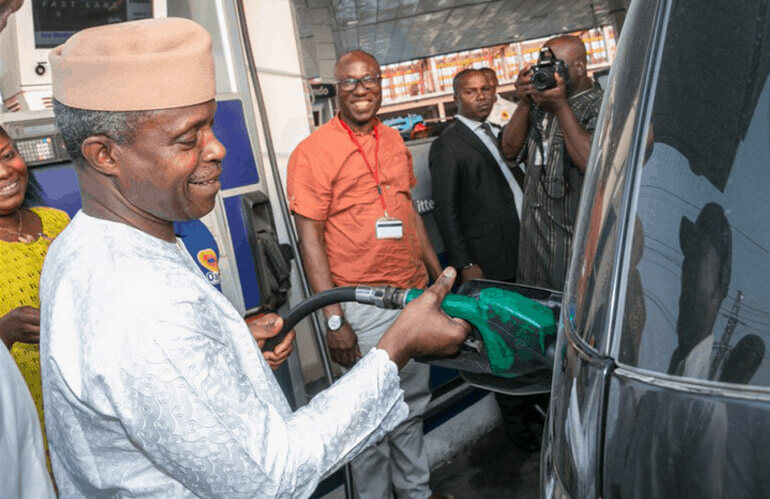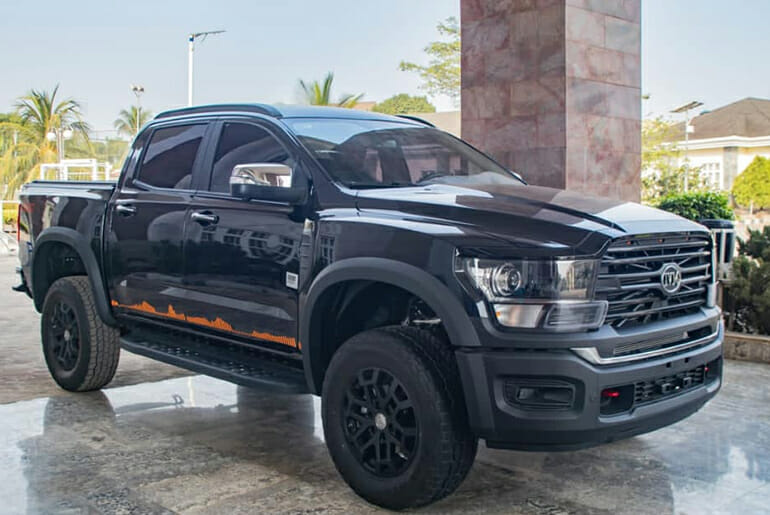If you recently bought a new car, you probably worry about the gas you purchase. The last thing you want to do is fill up on cheap gas, only to have your engine corrode or become damaged. We’ll go through the benefits of mixing gas from several stations in this section.
Table of Contents
Is it acceptable to combine gas from various gas stations?
In general, it is acceptable to combine gas from various gas stations, as long as the gas meets the same standards and specifications. Gasoline sold at different gas stations should meet the same minimum requirements for octane rating and other specifications set by regulatory bodies, such as the American Society for Testing and Materials (ASTM) in the United States.
Buy top trending Car accessories in Lagos and Original Korea Battery now Check @carfanzy Lagos on Instagram
However, there are some potential risks associated with combining gas from different gas stations. If one of the gas stations you used had contaminated gasoline, this could potentially contaminate the entire tank of gas. Additionally, if the gasoline you are combining has different levels of ethanol or other additives, this could affect the performance of your vehicle or cause damage to your engine over time.
It’s worth noting that most automotive experts recommend sticking with the same brand and type of gasoline for your vehicle whenever possible, as this can help ensure consistent performance and minimize the risk of any potential issues associated with combining different types of gasoline. However, if you do need to combine gas from different stations, it’s generally safe to do so as long as the gas meets the same specifications and standards.
Using Several Petrol Stations Can Improve Engine Performance
You may not be aware, but using different gas stations can benefit your car. Every gas station utilizes a different set of additives and chemicals. The quality of the gas improves with the cost of the additions.
You run the risk of developing deposits in your fuel lines if you just use one type of gasoline. You also fuel your automobile with different additives when you mix it up and use a different brand. This can aid in dislodging any accumulation and stop additional deposits.
Is it harmful to combine gas from various stations?
Combining gas from various stations is generally not harmful, as long as the gasoline is the same type and meets the same specifications and standards. Gasoline sold at different gas stations should meet the same minimum requirements for octane rating and other specifications set by regulatory bodies, such as the American Society for Testing and Materials (ASTM) in the United States.
However, there are some potential risks associated with combining gas from different stations. If one of the gas stations you used had contaminated gasoline, this could potentially contaminate the entire tank of gas. Additionally, if the gasoline you are combining has different levels of ethanol or other additives, this could affect the performance of your vehicle or cause damage to your engine over time.
It’s generally recommended to stick with the same brand and type of gasoline for your vehicle whenever possible, as this can help ensure consistent performance and minimize the risk of any potential issues associated with combining different types of gasoline. However, if you do need to combine gas from different stations, it’s generally safe to do so as long as the gas meets the same specifications and standards.
How Hazardous Is High Volatility Gas?
For several reasons, high-volatility gasoline is bad. First off, you’re wasting your money. Half of your gasoline might not even reach the fuel pump in the summer. This implies that throughout the summer you need to fill your tank roughly twice as frequently.
The second issue is that high amounts of volatility might harm your car. Your engine will develop vapour locks after a while. Your automobile might stall as a result of this. Even worse, it might ruin your gasoline pump or engine.
Check the type of gasoline you use in your car during the summer months to avoid having this kind of event happen to you.
How Many Different Gasoline Types Are There, Exactly?
There are several different types of gasoline available for use in automobiles, and the specific types and names of gasoline can vary by region and country. However, the most common types of gasoline used in automobiles worldwide are:
- Regular gasoline (also known as “unleaded gasoline” or “petrol”): This is the most commonly used gasoline for automobiles and is typically the cheapest option. It has an octane rating of around 87.
- Mid-grade gasoline: This is a blend of regular and premium gasoline and has an octane rating between 88 and 90.
- Premium gasoline: This is a higher octane fuel, typically with an octane rating of 91 or higher. It is more expensive than regular gasoline and is usually recommended for high-performance engines.
- Ethanol-blended gasoline: This is the gasoline that contains a certain percentage of ethanol, typically between 10% and 15%. It is often called “E10” or “E15” gasoline.
- Reformulated gasoline: This is a type of gasoline that has been reformulated to reduce emissions and improve air quality. It is often required in certain regions with high levels of air pollution.
- Oxygenated gasoline: This is a type of gasoline that has been blended with oxygen-containing compounds, such as ethanol or MTBE (methyl tertiary-butyl ether). It is used to reduce emissions and improve air quality.
- Racing fuel: This is a specialized type of gasoline with a high octane rating, typically used in racing cars or other high-performance vehicles.
It’s worth noting that some countries may have additional types of gasoline available or may use different names for these types of gasoline. Additionally, some gasoline stations may offer their own branded gasoline blends, which may have different names or formulations.
Have 1 million naira and above to Buy or Sell Cars In Nigeria? Check Carmart.ng RIght Now
All rights reserved. Reproduction, publication, broadcasting, rewriting, or redistribution of this material and other digital content on carmart.ng is strictly prohibited without prior express written permission from Carmart Nigeria - Contact: [email protected]
Stay informed and ahead of the New Car info! Follow The Carmart Blog on WhatsApp for real-time updates, Cheap Cars, and Latest new car content. Don't miss Any –
Join The Carmart Blog Channel







